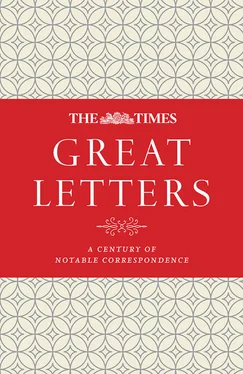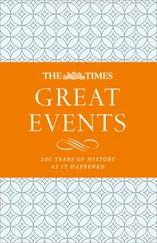1 ...6 7 8 10 11 12 ...20 “(All at once — at a desperate break-neck spot)
Rose a great cock ptarmigan,
Flapping, cackling, terrified,
From the crack where he lay hidden
(at the buck’s feet on the Edge).”
Had I not known from Miss Lawley (30 years ago) that the word “rouge” is in common use round Escrick, I might not have thought more about it; but as it is, I cannot agree that it is the same in sound and meaning as “scrooge” (pronounced scroodge) whereas “rouge” is pronounced exactly like the French equivalent of “red”.
As it may possibly interest some Old Etonians who know Scandinavia, I venture to send you this for what it may be worth.
I remain yours faithfully,
WILLIAM WARREN VERNON
A letter which gives some indication, perhaps, of the presumed readership of the newspaper and their interests in 1917. A rouge is a scoring play in Eton’s Field Game, an ancestor of soccer. Some scholars have seen a link between the attritional nature of it and Eton’s other unique sport the Wall Game, the preponderance of Etonian generals in the First World War and the strategy of grim slogging used for much of the conflict.
* * * * * * *
Unmarried Mother
25 February 1918
Sir, Mr Galsworthy, in his article in to-day’s Times on “The Nation’s Young Lives,” strongly advocates the adoption of widows’ or mothers’ pensions, and the proper protection and care of unmarried girl mothers and their illegitimate children. His words are opportune. No amount of Welfare Centres can do anything radical to help the children of widows or those born out of wedlock, until the State has awakened to its grave responsibility for their welfare.
I have, within the last two days, been present at a meeting of a committee of women Poor Law Guardians in one of our great provincial cities. They were engaged, no doubt unconsciously, in a game which, for want of a better name, I must call girl-baiting. I saw a young expectant mother cruelly handled, and tortured with bitter words and threats; an ordeal which she will have had to endure at the hands of four different sets of officials by the time her baby is three weeks old. These guardians told her, in my presence, that they hoped she would suffer severely for her wrong-doing, that they considered that her own mother, who had treated her kindly, had been too lenient, and that her sin was so great that she ought to be ashamed to be a cost to self-respecting ratepayers.
They added that the man who was responsible for her condition was very good to have acknowledged his paternity, but expressed the belief, nay, rather the hope, that he would take an early opportunity of getting out of his obligation. Meanwhile, a pale, trembling girl, within a month of her confinement, stood, like a hunted animal, in the presence of such judges.
We pray constantly in our churches for “all women labouring of child, sick persons, and young children, the fatherless, the widows, and all that are desolate and oppressed,” and yet we continue this oppression of the desolate.
Yours faithfully,
DOROTHEA IRVING
* * * * * * *
air sewage
1 November 1918
Sir, Few of us can do more than pass a very short period of the day in the open air. In a country in which a large proportion of the inhabitants spend most of their lives in industrial occupations, it is wiser to teach them the importance of introducing fresh air into their houses than to urge them to the impossible duty of spending much of their time out of doors.
If we devote, on average, eight hours to sleep, then a third at least of our 24-hour day is spent indoors, and each individual who reaches 60 years of life will have passed no less than 20 years of his existence in the one and only room where he is likely to be sole arbiter of the ventilation. Unless there are exceptional conditions, the windows of every sleeping room should be wide open all night and every night. The blinds should be drawn up, otherwise, from their valve-like action, they will only permit intermittent and uncertain ingress of fresh air, while the only egress for devitalized air is by the inadequate route of the chimney. The hours of night should also be employed for regularly and continuously flushing all day-rooms, where sewage air is manufactured in such quantities that it is never adequately scavenged during working hours. I know of crowded offices where the ventilation is imperfect through the day, and where the windows are all religiously closed up every night, so that the next morning the workers start by breathing more or less sewage air. The windows of many workrooms, hotels, schools, banks, churches and clubs are regularly “shut up for the night”. It has been shown that the sense of fatigue is more the consequence of breathing devitalized and stagnant air than of any other single factor. There is no harm in a room or railway carriage being warmed, if the air is regularly changed as it is used up. Scavenging our air sewage ensures a supply of fresh air. It is our chief safeguard against the onset or severity of influenza. The possibility of “a draught” — still a bogy to many — is best avoided by remembering that doors should be kept closed and windows kept open.
In 1867 Ruskin wrote: “A wholesome taste for cleanliness and fresh air is one of the final attainments of humanity.” Let us hope that this attainment may be advanced by the lessons of science applied in the present epidemic.
ST. CLAIR THOMSON
The letter was written during the 1918 Spanish flu outbreak. An estimated 20 million to 50 million people died worldwide.
* * * * * * *
doing your bit
24 June 1919
Sir, It is now a truism to say that in August 1914, the nation was face to face with the greatest crisis in her history. She was saved by the free will offerings of her people. The best of her men rushed to the colours; the best of her women left their homes to spend and be spent; the best of her older men worked as they had never worked before, to a common end, and with a sense of unity and fellowship as new as it was exhilarating. It may be that in four and half years the ideals of many became dim, but the spiritual impetus of those early days carried the country through to the end.
To-day on the eve of peace, we are faced with another crisis, less obvious but none the less searching. The whole country is exhausted. By natural reaction, not unlike that which led to the excesses of the Restoration after the reign of the Puritans, all classes are in danger of being submerged on a wave of extravagance and materialism. It is so easy to live on borrowed money; so difficult to realise that you are doing so.
It is so easy to play; so hard to learn that you cannot play for long without work. A fool’s paradise is only the ante-room to a fool’s hell.
How can a nation be made to understand the gravity of the financial situation; that love of country is better than love of money?
This can only be done by example and the wealthy classes have to-day an opportunity of service which can never recur.
They know the danger of the present debt; they know the weight of it in the years to come. They know the practical difficulties of a universal statutory capital levy. Let them impose upon themselves, each as he is able, a voluntary levy. It should be possible to pay to the Exchequer within twelve months such a sum as would save the tax payer 50 millions a year.
I have been considering this matter for nearly two years, but my mind moves slowly; I dislike publicity, and I had hoped that somebody else might lead the way. I have made as accurate an estimate as I am able of the value of my own estate, and have arrived at a total of about £580,000. I have decided to realize 20% of that amount or say £120,000 which will purchase £150,000 of the new War Loan, and present it to the Government for cancellation.
Читать дальше












